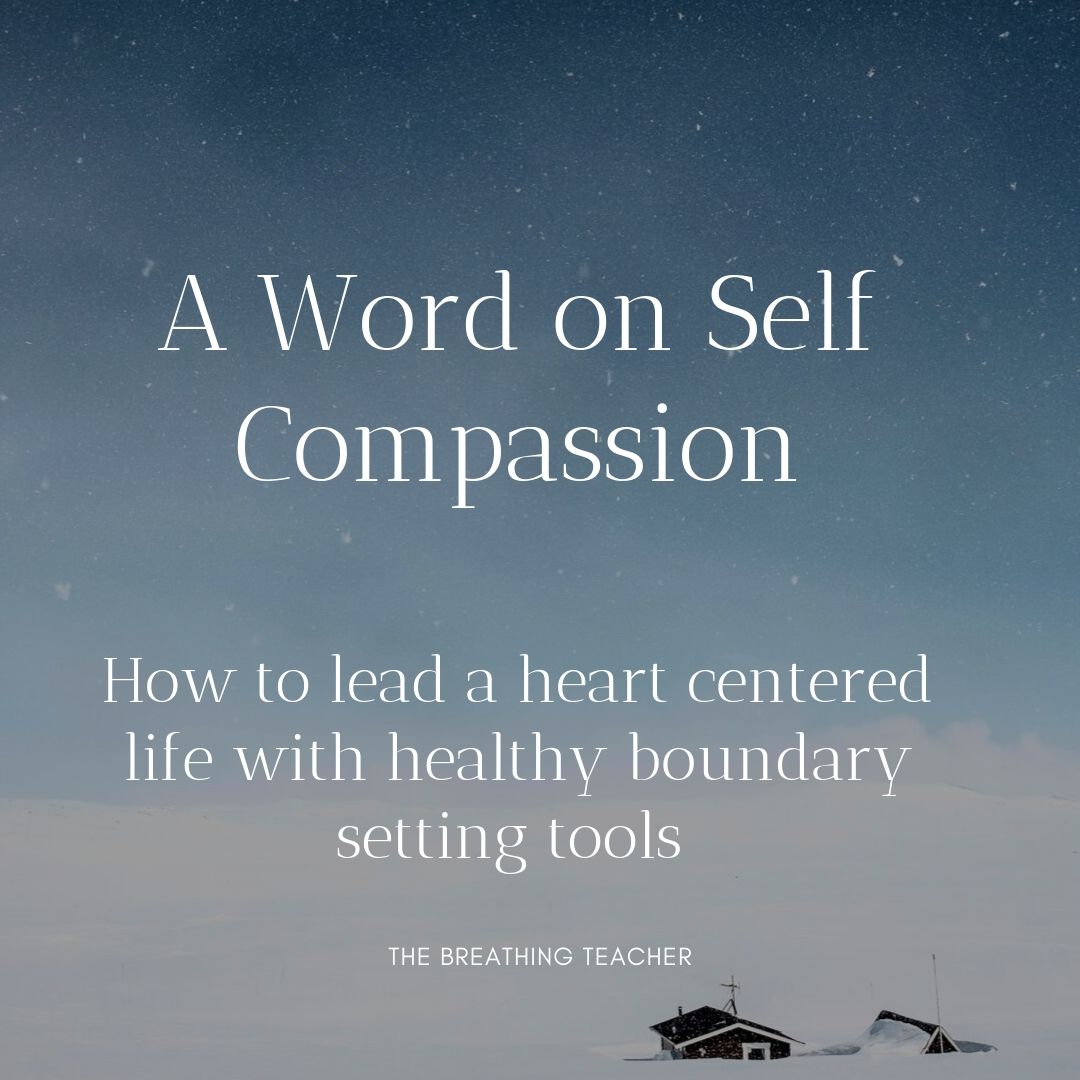When I taught Compassion to my students, here’s the definition I gave them: the desire to alleviate suffering of others and yourself. The definition doesn’t work for me if it doesn’t include the last part….”yourself.”
When we choose to live a heart centered, compassionate life, we choose to be in service to others, think about others before ourselves, and seek connection by seeing the best in others, (even when it’s hard to.)
*Keyword above: choose (this is always your choice). However, choosing to be compassionate and self-compassionate can be draining without the creation of boundaries. Boundaries: lines in the sand we draw so we can continue to love *ourselves* and others.
Without boundaries we leave ourselves susceptible and open to narcissism, manipulation, various kinds of abuse. If we are not careful, we can let our vulnerability and empathy be taken advantage of, leaving us further depleted than before we chose to interact or have an experience. (*Boundaries are not selfish, they are healthy and essential).
If you find yourself in a situation that you are not completely comfortable in, but are required to be in for a particular reason, here’s a practice:
The practice of Neutrality
Neutrality-a word taught to me by a therapist a few years ago after recovering from a narcissistic relationship. The way I have used neutrality to work for me is by using my knowledge of the situation, person I am interacting with, and inner strength to remain even-keeled and balanced. Think: impartiality. Not feeling too strongly or intensely. When I am balanced, I am in tune with my inner self, I use my inner knowing to guide me through a situation, and avoid becoming too rattled or sensitive.

Neuroscience tidbit- When our brain is primed for a stressful experience, when we know what to expect, it mitigates the impact of the stressor. We are so much better at navigating stressful or adverse situations if we know what’s to come. Use this knowledge and apply it to the person/situation you are preparing to experience, and use neutrality to carry you through. No one deserves to take your power away from you. You are too strong for that.
Big Takeaway
Leading a compassionate life is a choice, but a choice that cannot be without the drawing of boundaries.
Questions to ask yourself:
Am I making a choice that’s best for me?
Will I gain something of value from this interaction/experience?
Does this person/experience/interaction nurture me?
Does this person/experience lead me to more growth?
Am I receiving as much energy/effort towards this relationship as I am giving?
If you answered no to any of these questions in regards to your situation, please reconsider how to move forward in a way that is healthy and beneficial for you.
Need more compassion or boundary resources? Head over to my contact page and send me a note.
